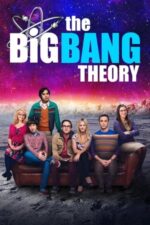Beyond the Male Gaze: Celebrating Women Behind the Camera
Isn't it fascinating how a single perspective can completely reshape a story? We talk so much about actors and cinematographers, but what about the directors – especially when those directors are women? For far too long, their contributions to cinema have been overlooked, relegated to footnotes in film history. But thankfully, that’s changing, and we're finally starting to appreciate the unique lens they bring to storytelling.
Think about it: so much of our understanding of narrative has been filtered through a predominantly male gaze. That’s not inherently bad – some incredible films have come from that perspective! – but limiting ourselves to one viewpoint means missing out on a whole universe of stories and approaches. Women directors often bring a different kind of empathy, nuance, and complexity to their work, exploring themes and characters in ways we might not otherwise see.
Take, for example, the quiet power of Big World. The film’s focus on Liu Chunhe's journey isn't just about overcoming physical challenges; it's about family, dreams, and finding your place – all rendered with a sensitivity that feels deeply personal. Similarly, Titina, while ostensibly an adventure story about exploration, gains so much emotional resonance through the portrayal of companionship and quiet resilience. You can feel the director’s care in crafting these moments.
And then there's the fascinating case of Alice Guy, whose documentary, Alice Guy, the First Female Filmmaker, shines a light on a truly remarkable figure. It’s humbling to realize how much she contributed to the very foundations of cinema, and it underscores just how many voices have been historically silenced. Discovering her work is like uncovering a hidden treasure – a reminder that our understanding of film history is constantly evolving.
You see this sensitivity reflected in films like Christmas at the Ranch and Holiday in Santa Fe, too. While both are undeniably feel-good, they approach themes of love, family, and cultural preservation with a warmth and authenticity that feels distinct. They aren't afraid to explore vulnerability and connection, often prioritizing character development over grand spectacle.
It’s not about saying male directors can’t do these things – it’s about recognizing the different strengths and perspectives women bring to the table. Supporting female filmmakers isn’t just a matter of fairness; it's enriching cinema for all of us. So, next time you’re looking for something new to watch, actively seek out films directed by women. You might be surprised at what you discover!
What are some other films that come to mind when you think about the impact of female directors? I'd love to hear your thoughts!






































